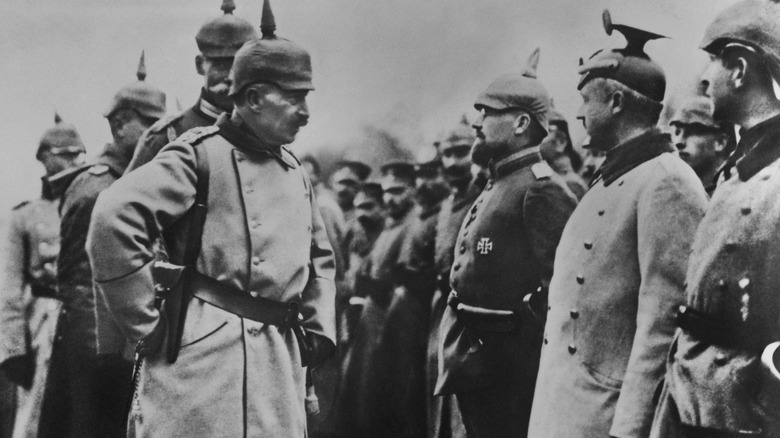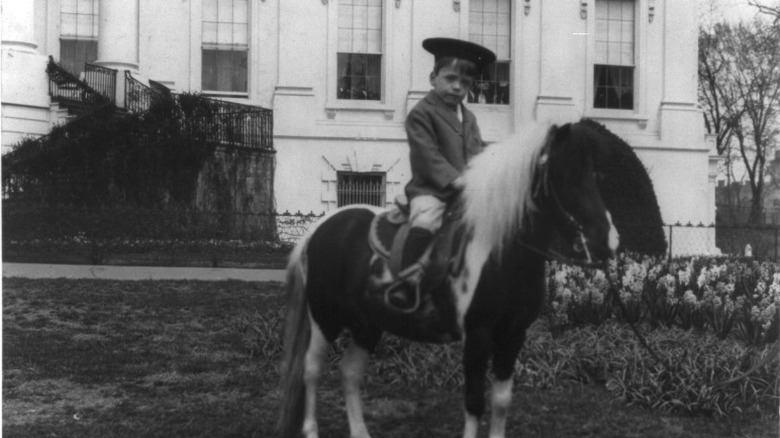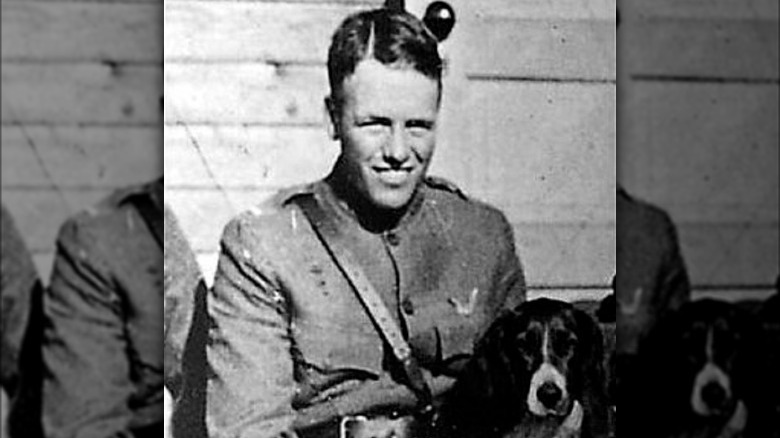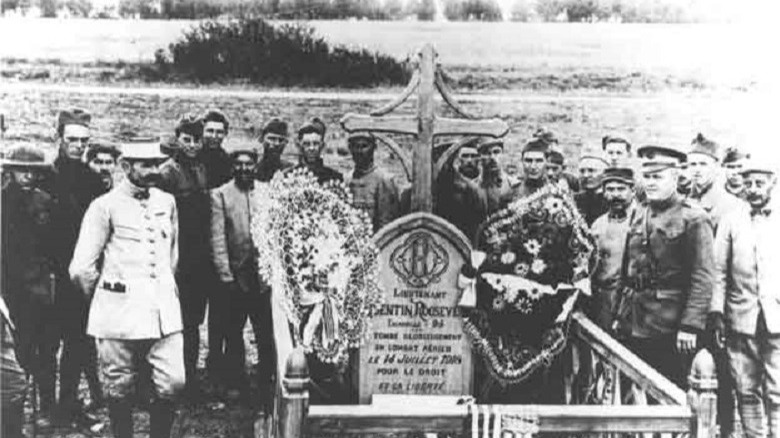German WWI Soldiers Took Unprecedented Actions After The Death Of A Special US Soldier
Correction 10/3/22: A previous version of this article stated that Quentin Roosevelt was buried alongside his father, President Theodore Roosevelt in the US. However, Quentin Roosevelt was buried alongside his older brother, Theodore Roosevelt, Jr. in Normandy, France.
World War I started on July 28, 1914, and ended on November 11, 1918. In those four years of global conflict, the U.S. lost more than 116,000 military personnel to combat and diseases (via the International Encyclopedia of the First World War). One of those who died during the war was Quentin Roosevelt, the son of Theodore Roosevelt.
Theodore Roosevelt served as the President of the United States from 1901 to 1909. His eldest child was Alice, whose mother died a few days after giving birth to her, per America 250. Two years after the death of his first wife, Roosevelt married his childhood friend, Edith Kermit Crow, and together they had five children together: Ted, Kermit, Ethel, Archibald, and Quentin. All four of the Roosevelt boys heeded the call of duty and fought during World War I, but unfortunately, Quentin — who was the youngest Roosevelt child — didn't make it out alive.
Quentin Roosevelt's background
Quentin Roosevelt was born in 1897, and he was just 4 years old when his family moved into the White House when his father became the president. According to the National Park Service, Quentin was a mischievous child. He, along with the children of other White House staff, was known as the White House Gang, and they caused a ruckus. They defaced portraits, threw snowballs at Secret Service guards, and one time created a makeshift baseball diamond on the lawn without permission. Quentin even snuck a pony inside the White House to cheer up his brother, Archie, when he was ill.
His parents were aware of his naughty nature and called him a "fine bad little boy," but despite his antics, he did well in school. He attended the prestigious Groton School in Massachusetts and was accepted at Harvard University for college (per ATI). It was there where he met and fell in love with Flora Whitney, whose grandfather was business magnate Cornelius Vanderbilt. Quentin didn't get to finish his Harvard education, though, as he decided to drop out and instead fight in World War I.
Quentin Roosevelt's death
Quentin Roosevelt was in his second year at Harvard in 1917 when he dropped out to join the 1st Aero Company of the New York National Guard. President Woodrow Wilson declared war against Germany, and Quentin decided to volunteer for his country. As noted by ATI, he proposed to Flora Whitney before he left for France. Quentin was a skilled pilot but was known for taking risks, and he was given the role of escorting planes that flew over German territory, as reported by War History Online. In 1918, Quentin became part of the 95th Aero Squadron, and he excitedly wrote to Flora about a German plane he shot.
On July 14, Bastille Day, U.S. pilots were flying home from a successful mission when they were ambushed by seven German planes. The flight leader saw how his pilots retreated, except for one. "I shook the two I was maneuvering with, and tried to get over to him but before I could reach him his machine turned over on its back and plunged down and out of control," the flight leader recalled. The pilot that was shot down turned out to be Quentin, and his plane fell behind enemy lines. He was just 20 years old at the time of his death.
German soldiers honored Quentin Roosevelt
The German pilots were shocked to learn that they had killed the youngest son of Theodore Roosevelt. In an unprecedented display of respect, the Germans honored the fallen U.S. soldier by burying Quentin Roosevelt with full military honors outside the village of Chamery, France, where he crashed. As reported by U.S. Army, an American prisoner of war witnessed about a thousand German soldiers pay their final respects and visit Quentin's grave, which was marked by a makeshift cross that read, "Lieutenant Roosevelt, buried by the Germans."
Theodore Roosevelt was devastated about his youngest son's death. When the war ended, he was interviewed by a French reporter who asked him about his thoughts after the war. Theodore replied, "I have no message for France. I have already given her the best I had" (via Story of the Week). Later on, a cross was made and placed at Quentin's grave. U.S. soldiers placed a monument without removing the one made by the Germans. A permanent headstone was placed at the location after the war, and Quentin's body remained there until 1955 when the Roosevelt family had him exhumed and buried beside his brother in Normandy, France (via National Park Service).



